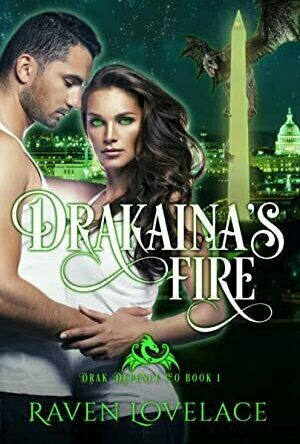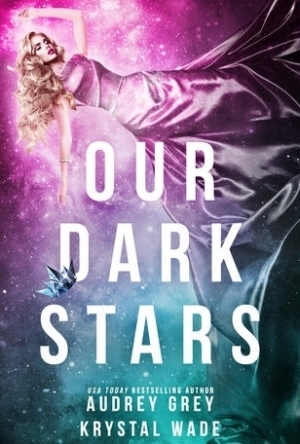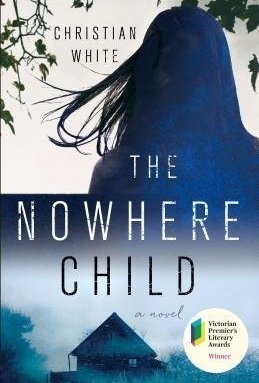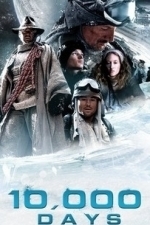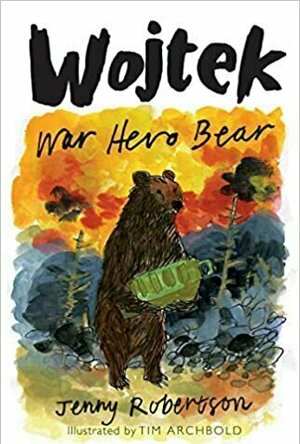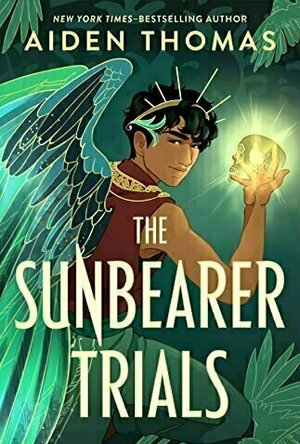Search
Search results
Merissa (13786 KP) rated Drakaina's Fire (Drak Defense Co. #1) by Raven Lovelace in Books
Jun 15, 2022
DRAKAINA'S FIRE is the first book in the Drak Defense Co. series and we are introduced to a first-class group of women mercenaries who are able to pull off jobs no one else can. They charge top dollar, and the US Government is happy to pay it due to their success rate. Oh, and the fact they donate some of their money to widows and children of war charities.
Daphne is the eldest and has eleven sisters (same father, different mothers) who are all Drakaina (female pronoun). Everett is the youngest General in the military and is ordered to learn more about the mercenary crew. Both of them turn into silly putty when they meet each other.
For a debut book, this was a good start. The general concept of the world - both the normal and paranormal one - has its foundations laid. The big bad has been made known to us and the reasons behind it.
However, there are sentences and phrases that are repeated unnecessarily, words spelt correctly but used wrongly (be instead of me), and some things that just don't make sense. The supporting characters fade into the background as you don't learn much about them, the exception being Charlotte but I still don't know much about her either. Also, Daphne and Everett are supposed to be leaders! Some of the things they do - both separately and together - just don't make sense or seem physically possible. For example, if you've got members of your team going missing, you're not going to go off by yourself with no backup, especially when you know what you're up against.
And don't even get me started on Daphne's blip about betrayal! My Kindle was very nearly damaged with this one. Of course, I'll believe the man who works for the enemy, who has just admitted kidnapping and torturing my sister, who baited a trap I've just walked into, over the word of my mate who has done nothing but be there for me since we've met. And how does said man reappear later when he's supposed to be absolutely and utterly dead! D.E.A.D! Apparently, Drakaina aren't as thorough as they think they are, nor is their fire as hot as they think.
On the whole, a good debut but it will definitely need to be tightened up to go forwards.
** same worded review will appear elsewhere **
* A copy of this book was provided to me with no requirements for a review. I voluntarily read this book, and the comments here are my honest opinion. *
Merissa
Archaeolibrarian - I Dig Good Books!
Daphne is the eldest and has eleven sisters (same father, different mothers) who are all Drakaina (female pronoun). Everett is the youngest General in the military and is ordered to learn more about the mercenary crew. Both of them turn into silly putty when they meet each other.
For a debut book, this was a good start. The general concept of the world - both the normal and paranormal one - has its foundations laid. The big bad has been made known to us and the reasons behind it.
However, there are sentences and phrases that are repeated unnecessarily, words spelt correctly but used wrongly (be instead of me), and some things that just don't make sense. The supporting characters fade into the background as you don't learn much about them, the exception being Charlotte but I still don't know much about her either. Also, Daphne and Everett are supposed to be leaders! Some of the things they do - both separately and together - just don't make sense or seem physically possible. For example, if you've got members of your team going missing, you're not going to go off by yourself with no backup, especially when you know what you're up against.
And don't even get me started on Daphne's blip about betrayal! My Kindle was very nearly damaged with this one. Of course, I'll believe the man who works for the enemy, who has just admitted kidnapping and torturing my sister, who baited a trap I've just walked into, over the word of my mate who has done nothing but be there for me since we've met. And how does said man reappear later when he's supposed to be absolutely and utterly dead! D.E.A.D! Apparently, Drakaina aren't as thorough as they think they are, nor is their fire as hot as they think.
On the whole, a good debut but it will definitely need to be tightened up to go forwards.
** same worded review will appear elsewhere **
* A copy of this book was provided to me with no requirements for a review. I voluntarily read this book, and the comments here are my honest opinion. *
Merissa
Archaeolibrarian - I Dig Good Books!
graveyardgremlin (7194 KP) rated Sweet Valley Confidential: Ten Years Later in Books
Feb 15, 2019
<b><i>"What a stupid book."</i></b>
That was my initial thought after turning the final page of <b>Sweet Valley Confidential: Ten Years Later</b>.
As a pre-teen, I was addicted to the <u>Sweet Valley High</u> series, and then later, the <u>Sweet Valley University</u> series as well. Before that even, I had read some of the Twins and Kids series, so when I heard this was coming out last year, I just knew I had to read it. I was excited beyond compare and went into full geek-out mode. Where are the perfect size-six Wakefield twins, and their friends and enemies, now? What are their occupations? Who are they dating or who'd they marry? And my questions kept going on and on. What has inspired this obsession? It's not like these books were high literature, but somehow they became ingrained into my life to this very day and I cannot help but remember SVH fondly.
It is nearly impossible to review the story within the covers without spoilers, but I am going to try my darnedest. Some cursing may or may not be involved.
<b>Short synopsis</b> (snarky comments in parentheses ;P):
Jessica has betrayed Elizabeth. <i>(Doesn't take a rocket scientist to figure out what she did. Anyone who's read the books could make an accurate guess.)</i> The Ultimate Betrayal. <i>(Oooooh!)</i> Elizabeth flees to New York. Elizabeth is a slightly sympathetic bitter victim/martyr who craves revenge throughout the book. Jessica is supposed to be a sympathetic betrayer/victim who's heartsick at destroying her sister. <i>(I don't buy it.)</i> Tons of reminiscing flashbacks ensue throughout the book, sometimes the same ones told by different characters, and take up about half of it, so there's barely any plot. Book ends with a thirteen-page <i>Where Are They Now?</i>-type epilogue that tells old fans what has happened to many major supporting characters from the original high school series. <i>(Apparently no one is allowed to be happy. And anyone you may have originally liked from SVH has turned into a big dick. WTF?)</i>
I expected to enjoy this as the usual over-the-top, soap opera stories I remember, but revamped a bit. Sadly, I was left feeling underwhelmed, disappointed, annoyed, and rather pissed off. For one thing, I could not buy the main betrayal -- <spoiler>Jessica and Todd?! In love!!?? Really? In what surreal dimension does that make any kind of sense? This broke the book for me. How can I believe anything else if this doesn't ring true. A passionate affair, sure. A one-night stand, why not? But actual 'til death do us part nonsense? Bull. Not when it's almost always been the Elizabeth and Todd, "made-for-each-other" type of thing. I actually wouldn't have minded if E & T hadn't ended up together, but for Todd to be with Jessica, that's just madness, plain and simple.</spoiler> -- it was just so unbelievable. And I mean that in a Sweet Valley way, which we all know is not steeped in any form of actual reality, so my standards are quite low and I expect the extraordinary and overwrought. So from this point on, which is within the first two chapters, I struggled, but somehow managed to read on. I admit, I gagged more than few times throughout the book. Who wouldn't when faced with passages such as this one,
<blockquote>"And what faces they were.
Gorgeous. Absolutely amazing. The kind you couldn't stop looking at. Their eyes were shades of aqua that danced in the light like shards of precious stones, oval and fringed with thick, light brown lashes long enough to cast a shadow on their cheeks. Their silky blond hair, the cascading kind, fell just below their shoulders. And to complete the perfection, their rosy lips looked as if they were penciled on. There wasn't a thing wrong with their figures, either. It was if billions of possibilities all fell together perfectly.
Twice."
-page 9/10</blockquote>
I hope you managed to hold onto your last meal. I barely did. I also had to endure "his beloved," "his love," and other similar nauseating descriptions.
This is not the PG-rated books from the past, the word "orgasm" is actually used. So is the F-bomb and other expletives. *gasp* Seriously, it does push the boundaries more than the innocent SVH series, but it's not very shocking by today's standards. Except that it does involve the Wakefield Twins, which was strange at first. Of course, current trends had to pop up, like Twitter and Facebook, Justin Timberlake and Beyonce, which always makes a book better and doesn't date it in the least. (That was heavy sarcasm in case you weren't sure.) The book does refer to some incidents and people from the SVU series, but only certain elements, otherwise it's mainly a continuation of high school and no one from the university days actually appears in the book.
Neither Elizabeth nor Jessica felt true to form, especially Jessica, and in fact, none of the characters, whether seen or just talked about, were right. Sure, some people change and some don't, but not a one was recognizable. Where did these strangers with the same names come from? Why couldn't there have been some semblance of the original shining through? Again, I have a hard time with the basis of the book, so that has severely colored my view of the entire thing, but as it stands, it was a complete waste of a good idea. I'd be willing to bet that any fan of SVH could come up with something a million times better than this dreck. Wasn't there an original ghostwriter available? You know, someone who might actually know the world and characters, and have the skill to develop them both in a believable manner?
The writing is rather clunky and purple-ly, often managing both at the same time. Redundancy abounds, editing mistakes, including wrong names and inconsistencies to previous events in SVH-iverse, and lots of use of the words "like" and "so", more-so in Jessica's narrative than anywhere else, which was really, really, so, like, irritating. Like, really. Ms. Pascal must have had a thesaurus at the ready, because there were big words awkwardly thrown into the narrative. While I appreciate authors utilizing lesser known or used words, some just don't blend well with the rest of the text and they pop-out unflatteringly. The structure needed fine-tuning and tenses were oddly used to differentiate the flashbacks from present day.
To put it succinctly, the writing isn't great and neither is the storyline, what there is of it. This was a bizarre read even by Sweet Valley standards and an insult to fans. Seriously, does Francine Pascal hate this universe and its readers? I think I'll stick to the <a href="http://www.goodreads.com/series/58723-sweet-valley-high">Sweet Valley High</a> series and make up my own stories about what happened afterward.
Slightly spoiler-ish lesson learned from this book:
<spoiler>Betrayal is okay as long as it's "Twu Luv."</spoiler>
Second lesson learned:
Everything always turns up fucking sunshine and roses and unicorns and lollipops for the worst person (or people) in the end.
I'd like to leave you with another winning description,
<blockquote>"There were no tears, but her mouth was twisted in a silent sob."
-page 17</blockquote>
<u>A thought a few hours after having finished this book:</u>
Maybe another "sequel" will eventually come out and it'll begin with Elizabeth waking up from the nightmare that is this book and we'll get the real ten years later story. Ahh, sweet dreams.
<u>Update: April 26, 2011:</u>
Oh yes, always good to blame the fans/readers for not liking their terrible book. By pointing out minor, petty reasons, I might add. <b>Warning:</b> book spoilers in article.
http://www.nytimes.com/2011/04/17/business/media/17sweet.html?_r=1
That was my initial thought after turning the final page of <b>Sweet Valley Confidential: Ten Years Later</b>.
As a pre-teen, I was addicted to the <u>Sweet Valley High</u> series, and then later, the <u>Sweet Valley University</u> series as well. Before that even, I had read some of the Twins and Kids series, so when I heard this was coming out last year, I just knew I had to read it. I was excited beyond compare and went into full geek-out mode. Where are the perfect size-six Wakefield twins, and their friends and enemies, now? What are their occupations? Who are they dating or who'd they marry? And my questions kept going on and on. What has inspired this obsession? It's not like these books were high literature, but somehow they became ingrained into my life to this very day and I cannot help but remember SVH fondly.
It is nearly impossible to review the story within the covers without spoilers, but I am going to try my darnedest. Some cursing may or may not be involved.
<b>Short synopsis</b> (snarky comments in parentheses ;P):
Jessica has betrayed Elizabeth. <i>(Doesn't take a rocket scientist to figure out what she did. Anyone who's read the books could make an accurate guess.)</i> The Ultimate Betrayal. <i>(Oooooh!)</i> Elizabeth flees to New York. Elizabeth is a slightly sympathetic bitter victim/martyr who craves revenge throughout the book. Jessica is supposed to be a sympathetic betrayer/victim who's heartsick at destroying her sister. <i>(I don't buy it.)</i> Tons of reminiscing flashbacks ensue throughout the book, sometimes the same ones told by different characters, and take up about half of it, so there's barely any plot. Book ends with a thirteen-page <i>Where Are They Now?</i>-type epilogue that tells old fans what has happened to many major supporting characters from the original high school series. <i>(Apparently no one is allowed to be happy. And anyone you may have originally liked from SVH has turned into a big dick. WTF?)</i>
I expected to enjoy this as the usual over-the-top, soap opera stories I remember, but revamped a bit. Sadly, I was left feeling underwhelmed, disappointed, annoyed, and rather pissed off. For one thing, I could not buy the main betrayal -- <spoiler>Jessica and Todd?! In love!!?? Really? In what surreal dimension does that make any kind of sense? This broke the book for me. How can I believe anything else if this doesn't ring true. A passionate affair, sure. A one-night stand, why not? But actual 'til death do us part nonsense? Bull. Not when it's almost always been the Elizabeth and Todd, "made-for-each-other" type of thing. I actually wouldn't have minded if E & T hadn't ended up together, but for Todd to be with Jessica, that's just madness, plain and simple.</spoiler> -- it was just so unbelievable. And I mean that in a Sweet Valley way, which we all know is not steeped in any form of actual reality, so my standards are quite low and I expect the extraordinary and overwrought. So from this point on, which is within the first two chapters, I struggled, but somehow managed to read on. I admit, I gagged more than few times throughout the book. Who wouldn't when faced with passages such as this one,
<blockquote>"And what faces they were.
Gorgeous. Absolutely amazing. The kind you couldn't stop looking at. Their eyes were shades of aqua that danced in the light like shards of precious stones, oval and fringed with thick, light brown lashes long enough to cast a shadow on their cheeks. Their silky blond hair, the cascading kind, fell just below their shoulders. And to complete the perfection, their rosy lips looked as if they were penciled on. There wasn't a thing wrong with their figures, either. It was if billions of possibilities all fell together perfectly.
Twice."
-page 9/10</blockquote>
I hope you managed to hold onto your last meal. I barely did. I also had to endure "his beloved," "his love," and other similar nauseating descriptions.
This is not the PG-rated books from the past, the word "orgasm" is actually used. So is the F-bomb and other expletives. *gasp* Seriously, it does push the boundaries more than the innocent SVH series, but it's not very shocking by today's standards. Except that it does involve the Wakefield Twins, which was strange at first. Of course, current trends had to pop up, like Twitter and Facebook, Justin Timberlake and Beyonce, which always makes a book better and doesn't date it in the least. (That was heavy sarcasm in case you weren't sure.) The book does refer to some incidents and people from the SVU series, but only certain elements, otherwise it's mainly a continuation of high school and no one from the university days actually appears in the book.
Neither Elizabeth nor Jessica felt true to form, especially Jessica, and in fact, none of the characters, whether seen or just talked about, were right. Sure, some people change and some don't, but not a one was recognizable. Where did these strangers with the same names come from? Why couldn't there have been some semblance of the original shining through? Again, I have a hard time with the basis of the book, so that has severely colored my view of the entire thing, but as it stands, it was a complete waste of a good idea. I'd be willing to bet that any fan of SVH could come up with something a million times better than this dreck. Wasn't there an original ghostwriter available? You know, someone who might actually know the world and characters, and have the skill to develop them both in a believable manner?
The writing is rather clunky and purple-ly, often managing both at the same time. Redundancy abounds, editing mistakes, including wrong names and inconsistencies to previous events in SVH-iverse, and lots of use of the words "like" and "so", more-so in Jessica's narrative than anywhere else, which was really, really, so, like, irritating. Like, really. Ms. Pascal must have had a thesaurus at the ready, because there were big words awkwardly thrown into the narrative. While I appreciate authors utilizing lesser known or used words, some just don't blend well with the rest of the text and they pop-out unflatteringly. The structure needed fine-tuning and tenses were oddly used to differentiate the flashbacks from present day.
To put it succinctly, the writing isn't great and neither is the storyline, what there is of it. This was a bizarre read even by Sweet Valley standards and an insult to fans. Seriously, does Francine Pascal hate this universe and its readers? I think I'll stick to the <a href="http://www.goodreads.com/series/58723-sweet-valley-high">Sweet Valley High</a> series and make up my own stories about what happened afterward.
Slightly spoiler-ish lesson learned from this book:
<spoiler>Betrayal is okay as long as it's "Twu Luv."</spoiler>
Second lesson learned:
Everything always turns up fucking sunshine and roses and unicorns and lollipops for the worst person (or people) in the end.
I'd like to leave you with another winning description,
<blockquote>"There were no tears, but her mouth was twisted in a silent sob."
-page 17</blockquote>
<u>A thought a few hours after having finished this book:</u>
Maybe another "sequel" will eventually come out and it'll begin with Elizabeth waking up from the nightmare that is this book and we'll get the real ten years later story. Ahh, sweet dreams.
<u>Update: April 26, 2011:</u>
Oh yes, always good to blame the fans/readers for not liking their terrible book. By pointing out minor, petty reasons, I might add. <b>Warning:</b> book spoilers in article.
http://www.nytimes.com/2011/04/17/business/media/17sweet.html?_r=1
postapocalypticplayground (27 KP) rated Our Dark Stars in Books
Jan 9, 2018
Talia is a Starchaser. Eldest sibling in an ailing dynasty her 18th birthday should be a time to celebrate, however, it marks her shift in adulthood and sovereign in waiting. Her first task? She must accept a betrothal to the cruel Cassius, a lesser match but from a planet rich with Ore. Up until this time Talia has had a steadfast companion to share her dream, not a human but a "mock." a humanoid droid named Ailat. When Cassius forces her to chose between saving her family and saving her best friend, Talia makes the only choice she believes she can. Her choice is far reaching and through a series of events Talia finds herself in an escape pod, floating into space.
100 years later, Will Perrault and his rag tag crew of misfits are on the hunt for salvage and after discovering Talia's pod they suddenly discover that they are targets with some very high profile hunters on their tail. A lot has changed since that fateful night for Talia and the tables have turned completely as mock became master and human became slave. As Talia awakes she cannot even begin to comprehend what has happened. As the truth of both the length of time Talia has been in stasis and the uprising of the mocks unfolds before her, Talia must fight to put right the wrongs of that terrible night.
Our Dark Stars is a gorgeous read, from the beautiful cover design to the words themselves. Talia is a wonderful character, full of both strength and vulnerability, she is able to hold her own and put aside her fears and grief to put right her wrongs. The chapters covering the fateful night 100 years prior are full of real heart pounding and also heartbreaking moments as Talia must choose between loyalty to her family and loyalty to her friend. Will's crew are a great bunch of characters, if you were a fan of the show Firefly you will find a lot to love with them as they bring humour to the darker sides of this story
Whilst I saw the reveal coming a mile off, it didn't spoil the enjoyment of the moment, which was terrifying in the face of how Talia came to be in that position. Our Dark Stars has some truly epic moments from space battles to strip clubs, but it is also a story about friendship, betrayal and redemption and how hope can be found in the most unlikely of places.
I really loved this book, I read it in 2 sittings and struggled to put it down. It's such an easy read, page after page just flow together - i'm glad the story was rounded off well but i'm also intrigued that there could be more of these characters story to come.
100 years later, Will Perrault and his rag tag crew of misfits are on the hunt for salvage and after discovering Talia's pod they suddenly discover that they are targets with some very high profile hunters on their tail. A lot has changed since that fateful night for Talia and the tables have turned completely as mock became master and human became slave. As Talia awakes she cannot even begin to comprehend what has happened. As the truth of both the length of time Talia has been in stasis and the uprising of the mocks unfolds before her, Talia must fight to put right the wrongs of that terrible night.
Our Dark Stars is a gorgeous read, from the beautiful cover design to the words themselves. Talia is a wonderful character, full of both strength and vulnerability, she is able to hold her own and put aside her fears and grief to put right her wrongs. The chapters covering the fateful night 100 years prior are full of real heart pounding and also heartbreaking moments as Talia must choose between loyalty to her family and loyalty to her friend. Will's crew are a great bunch of characters, if you were a fan of the show Firefly you will find a lot to love with them as they bring humour to the darker sides of this story
Whilst I saw the reveal coming a mile off, it didn't spoil the enjoyment of the moment, which was terrifying in the face of how Talia came to be in that position. Our Dark Stars has some truly epic moments from space battles to strip clubs, but it is also a story about friendship, betrayal and redemption and how hope can be found in the most unlikely of places.
I really loved this book, I read it in 2 sittings and struggled to put it down. It's such an easy read, page after page just flow together - i'm glad the story was rounded off well but i'm also intrigued that there could be more of these characters story to come.
Midge (525 KP) rated The Nowhere Child in Books
Mar 11, 2019
Brilliant And Dark
“The Nowhere Child” is a debut psychological thriller by Christian White and it was so special! Several things cast their spell - my favourite genre; a very smart cover design; winner of the Victorian Premier Literary Award; and great ratings from the offset. It could only be a winner!
The book opens with an introduction to the main protagonist Kimberly (Kim) Leamy who is a photography teacher in Melbourne, Australia. Twenty-six years earlier, Sammy Went, a two-year-old girl vanished from her home in Manson, Kentucky. James Finn, an American accountant who contacts Kim is convinced she was that child, kidnapped just after her birthday. She cannot believe the woman who raised her crossed international lines to steal a toddler.
Jack and Molly Went’s daughter Sammy disappeared from their Kentucky home in 1990. Already estranged, the couple drifted further apart as time passed. Jack did his best to raise and protect his other daughter and son while Molly found solace in her faith. The Church of the Light Within, a Pentecostal fundamentalist group who handle poisonous snakes as part of their worship, provided that faith.
Now, with proof that she and Sammy are in fact the same person, Kim travels to America to reunite with a family she never knew she had and to solve the mystery of her abduction that will take her deep into the dark heart of religious fanaticism.
For me, Christian White’s writing is captivating and extremely well structured. Although the theme of a child being stolen is not particularly original, the clever telling of this story made it a joy to read. The chapters alternate between the past and the present, maintaining the reader’s attention. The chapters narrated in the past explore the impact of Sammy’s disappearance on her family and the community in which they live. The other chapters follow Kim’s pathway of discovery to the truth about her past.
The most gripping parts of “The Nowhere Child” were the chapters about the past, as the author unearthed long-buried secrets of Kim’s grieving family. It seemed that nearly every character from her past had something they wanted to be kept hidden. Revelations were made that included identity, betrayal, secrets, loss and a sinister cult. A tense story of menace and suspense, the story held my interest from start to finish and the way in which Christian White brought everything to a conclusion was just fabulous.
I loved “The Nowhere Child” and I would recommend it to anyone who likes this genre. It has left me eager to read more from this author in the future.
Thank you to #NetGalley, and HarperCollins UK for a free ARC of #NowhereChild in exchange for a voluntary, honest review.
The book opens with an introduction to the main protagonist Kimberly (Kim) Leamy who is a photography teacher in Melbourne, Australia. Twenty-six years earlier, Sammy Went, a two-year-old girl vanished from her home in Manson, Kentucky. James Finn, an American accountant who contacts Kim is convinced she was that child, kidnapped just after her birthday. She cannot believe the woman who raised her crossed international lines to steal a toddler.
Jack and Molly Went’s daughter Sammy disappeared from their Kentucky home in 1990. Already estranged, the couple drifted further apart as time passed. Jack did his best to raise and protect his other daughter and son while Molly found solace in her faith. The Church of the Light Within, a Pentecostal fundamentalist group who handle poisonous snakes as part of their worship, provided that faith.
Now, with proof that she and Sammy are in fact the same person, Kim travels to America to reunite with a family she never knew she had and to solve the mystery of her abduction that will take her deep into the dark heart of religious fanaticism.
For me, Christian White’s writing is captivating and extremely well structured. Although the theme of a child being stolen is not particularly original, the clever telling of this story made it a joy to read. The chapters alternate between the past and the present, maintaining the reader’s attention. The chapters narrated in the past explore the impact of Sammy’s disappearance on her family and the community in which they live. The other chapters follow Kim’s pathway of discovery to the truth about her past.
The most gripping parts of “The Nowhere Child” were the chapters about the past, as the author unearthed long-buried secrets of Kim’s grieving family. It seemed that nearly every character from her past had something they wanted to be kept hidden. Revelations were made that included identity, betrayal, secrets, loss and a sinister cult. A tense story of menace and suspense, the story held my interest from start to finish and the way in which Christian White brought everything to a conclusion was just fabulous.
I loved “The Nowhere Child” and I would recommend it to anyone who likes this genre. It has left me eager to read more from this author in the future.
Thank you to #NetGalley, and HarperCollins UK for a free ARC of #NowhereChild in exchange for a voluntary, honest review.
Darren (1599 KP) rated 10,000 Days (2014) in Movies
Jun 20, 2019
Story: 10,000 Days starts as we enter the world 27-years after a comet struck Earth putting the survivors into a permanent ice age, we follow two groups of survivors, once together now at war, William Beck (Schneider) on one side, Remy Farnwell (Wingfield) on the other.
As the Beck’s discover moments of truth about the disaster and a potential cure, Remy is playing his attack to take their base, the race against time for human survival is on.
Thoughts on 10,000 Days
Characters – William Beck runs one of the clans in the frozen land, he has kept his people safe, always searching for the next way to survive, hopefully peacefully even against his enemy, he knew the world before the disaster and now he wants to return to it. Remy Farnwell leads the rival clan, living on the ice he fell out with the Beck’s wanting revenge for the betrayal as he sees it. He doesn’t mind killing people in the battle which he has made too personal. We do have a lot of characters in this film, William has three sons that all look exactly the same, we have the scientist figures which seems to be three different female characters, a pilot who failed to stop the comet who still lives with the nightmare. We get so many characters it truly is hard to keep up or invest in any of them.
Performances – The performances, well this is difficult because nearly all the actors and characters look the same, it is difficult to figure out who the lead is, nobody has any sort of emotional factor or strong moments to stand out.
Story – The story is the end of the world happened, we are now in an ice age which could be coming to an end, but two war driven clans want control of the best location. This sounds interesting enough, you would be wrong, we have moments of discovery, moments of war, though this just never knows which one is the most important. Sadly, this only ends feeling boring, we don’t get invested in the characters and for some reason the film kind of just ends with a massive cliff hanger.
Sci-Fi – The world has ended and now an ice-age has hit, well that is the sci-fi side of the film.
Settings – The film give us generic location which include ice area or cold looking warehouse.
Special Effects – The effects here are just terrible and look completely fake.
Scene of the Movie – The concept should work.
That Moment That Annoyed Me – The Effects.
Final Thoughts – This is a poor sci-fi movie that just doesn’t become interesting at any point in the film.
Overall: Boring throughout.
https://moviesreview101.com/2019/05/28/10000-days-2014/
As the Beck’s discover moments of truth about the disaster and a potential cure, Remy is playing his attack to take their base, the race against time for human survival is on.
Thoughts on 10,000 Days
Characters – William Beck runs one of the clans in the frozen land, he has kept his people safe, always searching for the next way to survive, hopefully peacefully even against his enemy, he knew the world before the disaster and now he wants to return to it. Remy Farnwell leads the rival clan, living on the ice he fell out with the Beck’s wanting revenge for the betrayal as he sees it. He doesn’t mind killing people in the battle which he has made too personal. We do have a lot of characters in this film, William has three sons that all look exactly the same, we have the scientist figures which seems to be three different female characters, a pilot who failed to stop the comet who still lives with the nightmare. We get so many characters it truly is hard to keep up or invest in any of them.
Performances – The performances, well this is difficult because nearly all the actors and characters look the same, it is difficult to figure out who the lead is, nobody has any sort of emotional factor or strong moments to stand out.
Story – The story is the end of the world happened, we are now in an ice age which could be coming to an end, but two war driven clans want control of the best location. This sounds interesting enough, you would be wrong, we have moments of discovery, moments of war, though this just never knows which one is the most important. Sadly, this only ends feeling boring, we don’t get invested in the characters and for some reason the film kind of just ends with a massive cliff hanger.
Sci-Fi – The world has ended and now an ice-age has hit, well that is the sci-fi side of the film.
Settings – The film give us generic location which include ice area or cold looking warehouse.
Special Effects – The effects here are just terrible and look completely fake.
Scene of the Movie – The concept should work.
That Moment That Annoyed Me – The Effects.
Final Thoughts – This is a poor sci-fi movie that just doesn’t become interesting at any point in the film.
Overall: Boring throughout.
https://moviesreview101.com/2019/05/28/10000-days-2014/
365Flicks (235 KP) rated Leopard (2016) in Movies
Nov 20, 2019
A Beautiful, Twisted, Dark, Intense and Mesmerizing tale of Betrayal, Violence and Heart Breaking Brotherly Love..
Anyone who listens to ourleopard5-1 Podcast knows that while Chris and myself love the fanfare of the Huge Blockbuster Marvel/DC/Star Wars releases. Well nothing can quite compare to the
smaller Independent Films that you just know every second of screen time came straight from one persons passion to make a piece of Cinema that is all there’s. A movie that can display such mastery of there craft and hit you square in the heart (or balls) and make you feel something that… In my opinion Capes and Spandex just cant do.
Leopard is available On Demand this month from Osiris Entertainment.
Leopard is exactly that type of movie. A true passion piece that is driven by the wonderfully carefully calculated mind of its Writer/Director/Actor, BUT smashed out of the park by his outstanding team of Actors. Most revleopard6iews and articles I have read liken this movie to the wonderful Paris,Texas but I personally thought it had a feeling of Shane Meadows Dead Man Shoes.
Leopard tells the story of Jack (Eoin Macken. Merlin, NBCs Night Shift Also the Writer/Director) and his brother Tom (Tom Hopper. Merlin, Black Sails). Jack is returning to his home town in Ireland after a prolonged absence and it is clear from the outset he is not all that welcome. We find that his father has passed away and he is back for the reading of the Will along with his brother Tom who is not all there (Think Lenny from Mice and Men). There relationship is fairly strained and we spend the course of the movie figuring out what happened 5 years ago and where that has left the two brothers now. Throw in some Hostile locals, A left for Dead girl to become the point of Toms fixation and a creepy Strip Club, you have leopard.
Chris and I cannot speak highly enough of this movie it ticks all of our boxes when looking for something a little bit different. The Irish setting not only makes for a great backdrop but also becomes a character within itself. The score to this movie is often hopeful and optimistic but full of eerie dread at the same time, truly wonderful. Eoin and Tom bring a level of chemistry you would hope for after there time together on Merlin. However I am going to say it here and now Tom Hopper is a Brit star to watch out for he smashed this out of the park. There is also a damn fine supporting cast in Jack Reynor (Transformers: Age of Extinction) Rebecca Night (Sky 1s The Starlings) and Helen Pearson (Mrs O from Hollyoaks).
Anyone who listens to ourleopard5-1 Podcast knows that while Chris and myself love the fanfare of the Huge Blockbuster Marvel/DC/Star Wars releases. Well nothing can quite compare to the
smaller Independent Films that you just know every second of screen time came straight from one persons passion to make a piece of Cinema that is all there’s. A movie that can display such mastery of there craft and hit you square in the heart (or balls) and make you feel something that… In my opinion Capes and Spandex just cant do.
Leopard is available On Demand this month from Osiris Entertainment.
Leopard is exactly that type of movie. A true passion piece that is driven by the wonderfully carefully calculated mind of its Writer/Director/Actor, BUT smashed out of the park by his outstanding team of Actors. Most revleopard6iews and articles I have read liken this movie to the wonderful Paris,Texas but I personally thought it had a feeling of Shane Meadows Dead Man Shoes.
Leopard tells the story of Jack (Eoin Macken. Merlin, NBCs Night Shift Also the Writer/Director) and his brother Tom (Tom Hopper. Merlin, Black Sails). Jack is returning to his home town in Ireland after a prolonged absence and it is clear from the outset he is not all that welcome. We find that his father has passed away and he is back for the reading of the Will along with his brother Tom who is not all there (Think Lenny from Mice and Men). There relationship is fairly strained and we spend the course of the movie figuring out what happened 5 years ago and where that has left the two brothers now. Throw in some Hostile locals, A left for Dead girl to become the point of Toms fixation and a creepy Strip Club, you have leopard.
Chris and I cannot speak highly enough of this movie it ticks all of our boxes when looking for something a little bit different. The Irish setting not only makes for a great backdrop but also becomes a character within itself. The score to this movie is often hopeful and optimistic but full of eerie dread at the same time, truly wonderful. Eoin and Tom bring a level of chemistry you would hope for after there time together on Merlin. However I am going to say it here and now Tom Hopper is a Brit star to watch out for he smashed this out of the park. There is also a damn fine supporting cast in Jack Reynor (Transformers: Age of Extinction) Rebecca Night (Sky 1s The Starlings) and Helen Pearson (Mrs O from Hollyoaks).
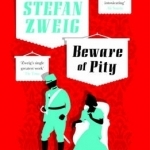
Beware of Pity
Anthea Bell, Stefan Zweig and David Pearson
Book
Stefan's Zweig's Beware of Pity is an almost unbearably tense and powerful tale of unrequited love...
BookInspector (124 KP) rated Wojtek: War Hero Bear in Books
Sep 24, 2020
More reviews at https://bbookinspector.wordpress.com
Well, I think this book is classified as a children’s read, but I noticed, that you should have pretty good knowledge in history, in order to understand what is going on in here. I picked up this book after reading a Holocaust memoir, so it was a very nice continuation to my reading theme. 😀
When Piotr, a polish soldier, discovers an abandoned bear cub, he decides to take him along on his journey to Palestine. But he discovers, that after losing his family to the Soviet regimen, Piotr feels very lonely, and Wojtek’s presence comforts not only him but other soldiers as well. I really liked the characters in this book, I found them charming, warm and pleasant personalities. I really enjoyed that author used multiple perspectives in this novel, I really loved reading Wojtek’s parts, I found them cute and funny. I loved the parts, were author shared Piotr’s story with the readers. It is a very sad story involving concentration camps and betrayal, but these parts made the whole book more complex and more interesting for me. (as an adult with some knowledge of history…)
The narrative follows the army squad accompanied by Wojtek, through their journeys in the middle east, and is very fun to read. I have to agree, Wojtek is a very funny and smart bear, and I loved all his mishaps. The author has done a great research for this novel, however, sometimes it felt like reading a history book, filled with war terminology and facts. Another aspect I really enjoyed was the pictures, Tim Archbold did a great job on them. I am glad that every chapter had a picture, and I was curious to find out, which scene from that chapter he decided to illustrate. 🙂
The writing style of this book was pretty straightforward, and it was quite easy and enjoyable for me. The chapters were a decent length and the pictures helped to make it more entertaining and playful. I did enjoy the setting of this book, it changes continuously, bringing in different scenery and atmosphere. I think that the ending was very realistic and believable for this novel, but some aspects left me a little bit upset with Piotr. So, to conclude, It is a great read for children as well as adults, especially if your child is learning about WWII, I think it would widen up their knowledge and you would have great fun reading it as well. Win-win situation. 😀 This novel has amusing characters as well as lots of serious and fun moments, and I do recommend to give this book a try. Enjoy 🙂
Well, I think this book is classified as a children’s read, but I noticed, that you should have pretty good knowledge in history, in order to understand what is going on in here. I picked up this book after reading a Holocaust memoir, so it was a very nice continuation to my reading theme. 😀
When Piotr, a polish soldier, discovers an abandoned bear cub, he decides to take him along on his journey to Palestine. But he discovers, that after losing his family to the Soviet regimen, Piotr feels very lonely, and Wojtek’s presence comforts not only him but other soldiers as well. I really liked the characters in this book, I found them charming, warm and pleasant personalities. I really enjoyed that author used multiple perspectives in this novel, I really loved reading Wojtek’s parts, I found them cute and funny. I loved the parts, were author shared Piotr’s story with the readers. It is a very sad story involving concentration camps and betrayal, but these parts made the whole book more complex and more interesting for me. (as an adult with some knowledge of history…)
The narrative follows the army squad accompanied by Wojtek, through their journeys in the middle east, and is very fun to read. I have to agree, Wojtek is a very funny and smart bear, and I loved all his mishaps. The author has done a great research for this novel, however, sometimes it felt like reading a history book, filled with war terminology and facts. Another aspect I really enjoyed was the pictures, Tim Archbold did a great job on them. I am glad that every chapter had a picture, and I was curious to find out, which scene from that chapter he decided to illustrate. 🙂
The writing style of this book was pretty straightforward, and it was quite easy and enjoyable for me. The chapters were a decent length and the pictures helped to make it more entertaining and playful. I did enjoy the setting of this book, it changes continuously, bringing in different scenery and atmosphere. I think that the ending was very realistic and believable for this novel, but some aspects left me a little bit upset with Piotr. So, to conclude, It is a great read for children as well as adults, especially if your child is learning about WWII, I think it would widen up their knowledge and you would have great fun reading it as well. Win-win situation. 😀 This novel has amusing characters as well as lots of serious and fun moments, and I do recommend to give this book a try. Enjoy 🙂
RavenclawPrincess913 (253 KP) rated The Sunbearer Trials in Books
Sep 8, 2022
The Sunbearer Trials by Aiden Thomas is a five out of five stars. I loved it and it was hard to put down once the Trials started. The Golds who take part in the Trials are Ocelo, Marino, Twins: Auristela, Aurelio, Atzi, Xochi, Dezi and Niya. The Jades who takes part are Xio and our main character Teo Son of Quetzal. The Sunbearer Trials are trials that take place to decide who will be this decade's Sunbearer and who will be the one sacrificed in order to fuel the Sol Stone for the next ten years to keep the people safe from the Obsidians. The Obsidian God's were locked away when Sol sacrificed themselves to protect their people. If a sacrifice doesn't take place every ten years to refuel the stone they will be set free. The eight golds and two jades must compete in five Trials to see who Sol deems worthy enough of being Sunbearer and the one who is sacrificed to protect all others.
This boom had a lot of action which I loved and made it very interesting. I love books that are action packed. Some Trials were more interesting than the others. My favorite was probably the trial where Aurelio and Teo teamed up and won it. They were friends when little so it must have been nice being able to work together again. I also loved the animal one the animal that Teo collected was so cute. The trial they had to collect all the stones seems fun as well. The last one was pretty scary though especially Auristela's outburst at the end of it. By the end of the book I was crying. Teo, Nina and Xio were friends throughout the Trials but I always had a bad feeling about Xio. Something about him just seemed off. So I was surprised but not surprised by their betrayal at the end.
My least favorite character of the ten competitors was probably Ocelo. He just gives off bad vibes. It was Auristela at first to but I came to realize deep down she was just trying to protect her twin brother Aurelio and help him to become Sunbearer. She wanted this for him so their mom would deem him worthy and stop treating him so badly.
Outside the Trials my favorite scene was probably when Aurelio and Teo sneaked off the boat to get the candy to cheer up Niya. I loved when Aurelio touched Teo's wings it was cute. If you love books with God's, Goddesses, and their children I definitely recommend reading this. Also, I love the cover it fits the story perfectly.
This boom had a lot of action which I loved and made it very interesting. I love books that are action packed. Some Trials were more interesting than the others. My favorite was probably the trial where Aurelio and Teo teamed up and won it. They were friends when little so it must have been nice being able to work together again. I also loved the animal one the animal that Teo collected was so cute. The trial they had to collect all the stones seems fun as well. The last one was pretty scary though especially Auristela's outburst at the end of it. By the end of the book I was crying. Teo, Nina and Xio were friends throughout the Trials but I always had a bad feeling about Xio. Something about him just seemed off. So I was surprised but not surprised by their betrayal at the end.
My least favorite character of the ten competitors was probably Ocelo. He just gives off bad vibes. It was Auristela at first to but I came to realize deep down she was just trying to protect her twin brother Aurelio and help him to become Sunbearer. She wanted this for him so their mom would deem him worthy and stop treating him so badly.
Outside the Trials my favorite scene was probably when Aurelio and Teo sneaked off the boat to get the candy to cheer up Niya. I loved when Aurelio touched Teo's wings it was cute. If you love books with God's, Goddesses, and their children I definitely recommend reading this. Also, I love the cover it fits the story perfectly.

Rosalind: DNA's Invisible Woman
Book
Rosalind: DNA’s Invisible Woman tells the true story of the woman who discovered the structure of...
Historical Fiction Narrative Non Fiction
